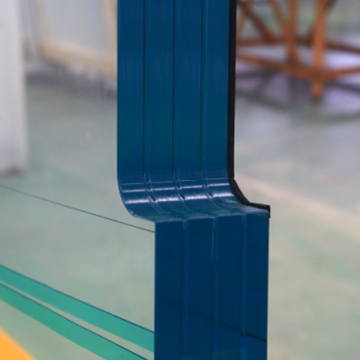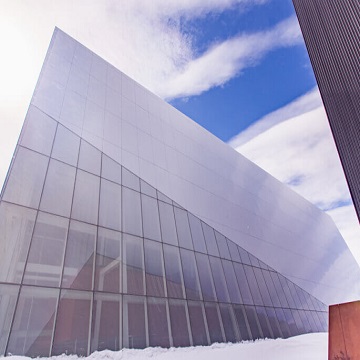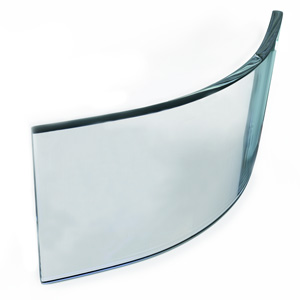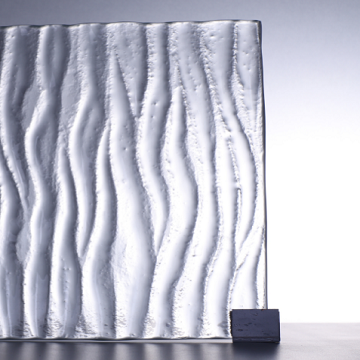What type of glass is most sustainable?
Environmentally Sustainable Glass. Glass is often referred to as a Green product, because the main component to making glass is Silica. Found in sand, Silica is considered a renewable and never ending resource.
5 REASONS WHY GLASS IS A SUSTAINABLE MATERIAL
At a time when environmental challenges are high on the global agenda, the concept of sustainability has never been more important. In ecology, sustainability is the capacity to endure; it is how biological systems remain diverse and productive indefinitely.
And if we want to secure the future of our planet and its future generations, we need to start changing our behaviours, one step at a time. But leading a more sustainable lifestyle doesn’t have to be difficult. Small changes can make all the difference. For example, by choosing ethically made products and sustainable packaging, like glass.
But is glass sustainable? The answer is a resounding yes. Here are 5 reasons why glass is one of the best examples of a sustainable material to incorporate into your lifestyle.
1. GLASS IS 100% RECYCLABLE AND REUSABLE
One of the main reasons glass is sustainable is because it is 100% endlessly recyclable. This means that recycled glass is always part of the recipe for new containers. And in this ongoing bottle-to-bottle system, it can take as little as a month for a bottle to be back on the shelves.
Glass can also be reused infinitely without losing quality. You can reuse your containers to store food, or if you want to unleash your inner artist, you can also turn them into candle holders, flower vases, or desk organizers (follow our Instagram for the best DIY ideas).
2. GLASS IS INERT
Glass has the best barrier protection compared to other packaging materials. It acts as a secure barrier against external influences, which means that products are kept safe for longer, even once opened. It is also an all-time favourite when it comes to preserving the taste, aroma and texture of food and drinks.
3. GLASS CAN HELP YOU AVOID WASTE
Apart from keeping your food safe and tasty, glass can also help you prevent waste.
Its transparency makes it easier to distinguish products and know “what is where” without having to remove the lid. It’s also quicker to see if food is getting spoiled, thus preventing its loss.
4. GLASS CAN REFLECT AND ABSORB SOLAR ENERGY.
The energy absorption properties of glass make it possible to convert sunlight into energy – and businesses and homes around the world are already generating energy through their windows and panels. If you’re trying to add a touch of green to your home, you should also know that glass is perfect for terrariums – it retains the heat inside and creates the ideal microclimate for your plants.
On the other hand, glass can also refract solar energy, protecting sensitive products – such as beer, oils, and pharmaceuticals – from degradation and chemical reactions caused by sunlight. The colour of the container determines what types of light can pass through the surface – that’s why you often see amber, green, and blue bottles.
5. RECYCLING GLASS SAVES ENERGY, NATURAL RESOURCES AND REDUCES CARBON EMISSIONS
One of the many advantages of recycling glass is the energy saved during the manufacturing process. The more recycled content used, the less energy is wasted to create new glass, because used glass (called cullet) melts at a much lower temperature than the raw materials.
Melting cullet faster, also means less carbon emissions. And we can’t slow down the pace, because every tonne of recycled glass saves 670 Kgs of CO2. The industry is also developing carbon-neutral solutions, such as the Furnace for The Future, to reduce manufacturing CO2 emissions by 60%, and make glass the ultimate sustainable choice.
In addition to all these sustainable benefits, recycling your bottles and jars also saves virgin materials, such as sand, limestone, and soda ash.
Now that you know why glass is sustainable and the importance of recycling it, don’t forget to share these findings with your friends and family. You can also help our planet by raising awareness about sustainability and environmentally friendly practices.
Now that you know why glass is sustainable and the importance of recycling it, don’t forget to share these findings with your friends and family. You can also help our planet by raising awareness about sustainability and environmentally friendly practices.
And the next time you’re deciding which product to pick up on the shelves, think first of glass: the packaging choice for a healthy future and a sustainable living for the planet and people alike.
Sustainability & the Environment
Glass is a sustainable, fully recyclable material which provides great environmental benefits such as contributing to mitigating climate change and saving precious natural resources. It is also highly appreciated in many applications for its inert nature and its contributions to safeguarding people’s health ad well being.
Mitigate climate change
In many of its application glass can help to save energy. It is most obvious in the case for insulating glass for windows and facades but also for less known products such as weight-lightening reinforcement glass fibre used in automotive, aviation and other transport modes to reduce the weight of vehicle and their fuel consumption.
Glass is also used to generate renewable energy through solar-thermal and photovoltaic applications and wind turbine, which largely profit from light weight reinforcement glass fibres.
Save natural resources
Glass is a resource efficient material which is made of abundant natural raw material such as sand and glass waste (cullets). Glass is a fully recyclable material that can be recycled in close loop over and over again.
This is particularly true for glass bottles which on average have a recycling rate varying from 50% to 80%. Thanks to glass recycling, significant amounts of raw materials are saved and natural resources are preserved. Glass recycling also helps in saving energy as cullets melt at a lower temperature than raw materials. Consequently, less energy is required for the melting process.
In other glass sectors, considerable efforts are made to recycle glass after use even though each sector has its own specificities and quality requirements. The amount of solid waste produced by the glass industries during manufacturing is extremely low in the glass industries as almost all glass waste (cullets) are immediately recycled and put back to furnaces to serve as raw material.
Safeguard people’s health and well-being
Glass is among the preferred materials not only for its aesthetics but also for its own characteristics. Glass preserves taste and vitamins. As an inert material, it guarantees that food and beverages placed in glass containers are not stained by the packaging. It is also commonly used in the pharmaceutical industry to preserve the properties of medicines. In another side of the medical sector, optical glass helps improve the vision of millions of Europeans.
In construction as well, architects not only use large glazed areas for their energy-saving properties but also because they provide natural light into buildings which enhance living and working conditions of occupants. Studies show that glass in buildings, through all these benefits, contribute to people’s well-being and improved health conditions.
Wallkingdon Glass offers not only one of the broadest selections of architectural, decorative, and specialty glass, but we also offer services that allow our clients to do more with glass. If you want to get high quality glass and the cost effective solutions while keeping quality to highest level, send an email to enquiry@wallkingdonglass.com, we will have the valuable input and creativity of glass design experts to help you.







